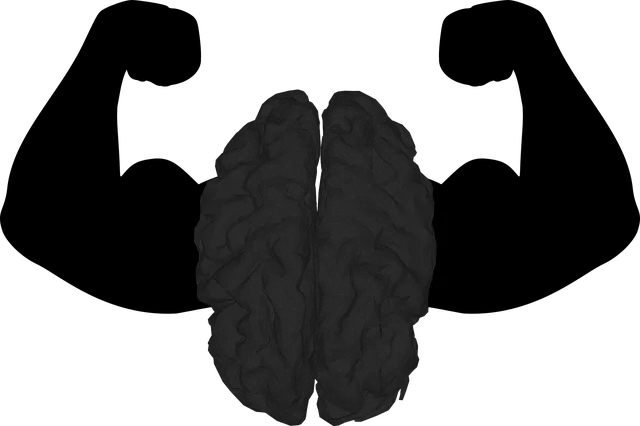Kaiser Permanente mental health locations in Colorado Springs utilize group facilitation techniques to empower individuals through shared experiences and collective support. Therapists create safe spaces for open discussions, fostering resilience, new perspectives, and holistic mental well-being. Effective communication, active listening, and interactive activities enhance emotional engagement and trust, strengthening support systems and personal growth.
“Uncovering the power of community support in mental wellness journeys, this article explores effective group facilitation techniques at Kaiser Permanente mental health locations in Colorado Springs. We delve into the significance of creating safe spaces, fostering inclusive environments, and employing strategic communication for optimal group sessions.
From understanding group dynamics to incorporating interactive activities, these methods enhance well-being and offer a unique support system within the vibrant Colorado Springs community.”
- Understanding the Role of Group Facilitation in Mental Wellness Support
- Creating a Safe and Inclusive Environment for Colorado Springs Community Members
- Effective Communication Strategies for Mental Health Group Sessions
- Incorporating Interactive Activities to Enhance Mental Well-being in Groups
Understanding the Role of Group Facilitation in Mental Wellness Support

In the supportive environment of group facilitation, mental wellness professionals at Kaiser Permanente mental health locations Colorado Springs play a pivotal role in fostering community and healing. This approach goes beyond individual therapy, empowering individuals through shared experiences and collective support. By facilitating group sessions, therapists create a safe space where members can openly discuss their challenges, gain new perspectives, and learn from one another’s resilience.
Group facilitation techniques are instrumental in promoting Depression Prevention, Inner Strength Development, and Self-Care Routine Development for Better Mental Health. Through interactive activities, guided discussions, and collaborative problem-solving, facilitators help participants cultivate coping strategies, build self-esteem, and establish meaningful connections. This holistic approach not only enhances mental well-being but also strengthens the support system around each individual, contributing to their overall recovery and resilience.
Creating a Safe and Inclusive Environment for Colorado Springs Community Members

In Colorado Springs, Kaiser Permanente mental health locations play a vital role in fostering community well-being. Creating a safe and inclusive environment is essential for effective group facilitation. These spaces should encourage open dialogue, where individuals feel comfortable sharing their experiences and perspectives without fear of judgment. By fostering an atmosphere of acceptance and belonging, facilitators can unlock the full potential of group therapy sessions.
Utilizing techniques that promote emotional intelligence and positive thinking is key to achieving this. Encouraging active listening, empathy, and understanding among participants helps build a supportive network. Through shared experiences, community members can learn stress reduction methods and develop coping strategies that resonate with their unique challenges. This inclusive approach ensures that everyone feels valued, allowing for profound personal growth and enhanced mental wellness.
Effective Communication Strategies for Mental Health Group Sessions

Effective communication is a cornerstone of successful mental health group facilitation. At Kaiser Permanente mental health locations in Colorado Springs, facilitators employ various strategies to create a safe and inclusive environment for all participants. Active listening, where facilitators give undivided attention to each speaker, helps individuals feel heard and valued. This technique encourages open dialogue and fosters trust among group members. Additionally, using clear and concise language ensures that everyone understands the discussion’s focus, promoting meaningful engagement.
In navigating complex topics, facilitators draw upon Conflict Resolution Techniques to manage differing viewpoints constructively. By mediating discussions with a focus on understanding rather than judgment, they help participants resolve conflicts amicably. Trauma Support Services also play a vital role, especially when dealing with sensitive issues. Facilitators use these services to create a supportive atmosphere where individuals can process and share their experiences in a controlled setting, enhancing overall group cohesion and mental wellness.
Incorporating Interactive Activities to Enhance Mental Well-being in Groups

Incorporating interactive activities into group sessions at Kaiser Permanente mental health locations in Colorado Springs can significantly enhance participants’ emotional well-being. These activities, designed to foster engagement and connection among members, create a safe and supportive environment where individuals feel comfortable sharing their experiences and insights. Techniques such as role-playing exercises, art therapy, or even simple icebreakers encourage active participation, promoting open dialogue and building trust within the group. By tapping into people’s creativity and providing alternative means of expression, facilitators can help individuals process and manage their emotions more effectively, a key aspect often highlighted in mental health policy analysis and advocacy efforts.
Interactive approaches also align with strategies for public awareness campaigns development by making sessions dynamic and memorable. They allow facilitators to tailor content to the unique needs and interests of the group, ensuring that each session offers valuable insights and practical tools for improving mental wellness. This personalized approach not only enhances the overall effectiveness of the program but also encourages consistent attendance, as participants look forward to engaging in these interactive activities.
Group facilitation plays a pivotal role in enhancing mental wellness within communities, as evidenced by successful programs at Kaiser Permanente mental health locations in Colorado Springs. By fostering safe and inclusive environments, employing effective communication strategies, and incorporating interactive activities, facilitators can significantly improve the well-being of participants. These techniques not only support individuals but also create a supportive network that encourages open dialogue and personal growth. Understanding and implementing these facilitation methods is key to revolutionizing mental health support in communities across the nation.






